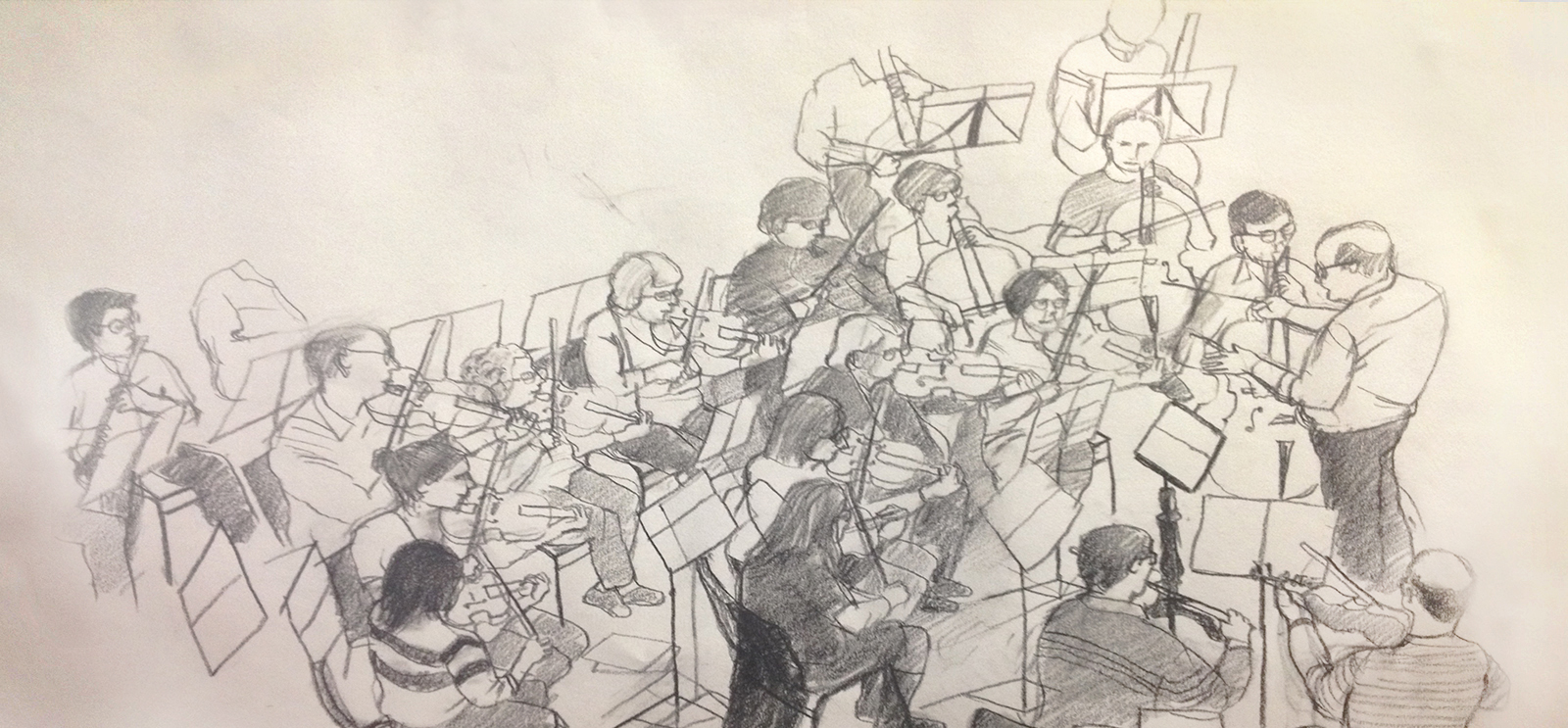
(Photography by Terry Madeley, CC BY 2.0)
Logan Center panel asks: Who is classical music for?
Lucinda Ali-Landing, founder-director of the Hyde Park Suzuki Institute, is a third-generation classical musician who started playing Suzuki violin as a child. “I didn’t find out blacks weren’t in classical music until I grew up,” she said. Graduate student Braxton Shelley recalled the moment—just before singing a tenor solo with the Duke University Chorale as an undergraduate—when it truly sank in that he was the only African American man in the group. Almost four years after graduating, “I’m accustomed to it,” he said. The Oscars, a different cultural phenomenon widely criticized for its lack of diversity, was only two days away. So it was tempting to call the panel discussion at the Logan Center penthouse on a February Friday afternoon #orchestrassowhite.
Sponsored by the UChicago Chamber Music Organization; the Center for the Study of Race, Politics, and Culture; and the UChicago Student Government Finance Committee, “Studying the Score: Race, Class, and Privilege in Classical Music” examined the issue of diversity in classical music. Five of the eight panelists were African American, three white. All were musicians. The audience, filling most of the available chairs, was even more diverse, with a broader range of racial and ethnic groups and vocations. And the questions that emerged were not easily answered with hashtags.
Who gets to participate in classical music?
Most orchestras are not as exclusionary as the Vienna Philharmonic, which for many years did not admit women or minorities. But they’re pretty far from diverse. Blind auditions, in which the prospective orchestra members play behind a screen, make some small difference in diversity. But they don’t address the factors that keep people from even getting to the level where they can participate in a blind audition, said associate music professor Travis Jackson. In response to a question later about whether it would bother musicians of color if they were perceived as “tokens,” Jackson noted that, as in other fields of endeavor, white men are never considered to have gotten a job because of their race or gender. “That basically means the only people who deserve anything are white men.” Ali-Landing quipped, “They don’t want us there, except in February,” for African American History Month.
And what do we mean by “participate”?
Associate music professor Steven Rings said he imagined “versions of this discussion in the boardroom at the Chicago Symphony Orchestra—‘We would love to have you as a consumer, but we don’t necessarily want you on the stage.’” As their audience shrinks, orchestras and opera companies clearly must reach out to a broader demographic, whether or not their musicians are diverse. Ali-Landing recalled being among the only African American people in the audience on a recent trip with her daughter to see pianist Emanuel Ax perform with the Chicago Symphony Orchestra. Then there’s the issue of classical music as an educational tool. Rings talked about the “hydrogen bomb” that exploded in the American Musicological Society in response to a blog post on teaching opera in prisons. The post exemplified what Shelley called the “therapeutic effect of whiteness”: the idea that European art forms are inherently more educational or uplifting than those from elsewhere. Shelley, who is pursuing a joint degree in music theory and divinity, studies the influence of classical music on gospel music.
How can people who are in a position to make change do it?
Meredith Aska McBride, AM’12, PhD’15, noted that many orchestras fill openings simply by asking their current musicians if they know people. Increasing diversity can be “as boring as posting a job on certain listservs instead of just asking a friend,” she said.
There’s at least one minority group having success in classical music, right?
Asian and Asian American musicians have been comparatively well represented in classical music for years, but not as vocalists. “People claim they can hear races,” said a South Asian graduate student in the audience. “There’s still this idea within opera that people who are not white have a different sound.” The student, who had performed opera until she began graduate school, said, “When I sang badly, they wanted to believe I was South Asian. When I sang well, they wanted to believe I was half white or Latina.”
So what’s the solution?
Like diversity in Hollywood, or in the Fortune 500, or in publishing, or anywhere, Jackson said, “We’re not going to get progress until there are no longer people who don’t think these terms describe them”: as long as white people refuse to see white as a race, or men refuse to see “gender issues” as applicable to men as well as women. “I don’t know how we get to that point,” he admitted. But the panel had opened some eyes, and moderator Lindsay Wright, a graduate student in musicology and ethnomusicology, encouraged continued discussion. “Keep thinking,” she said. “Keep asking.”
